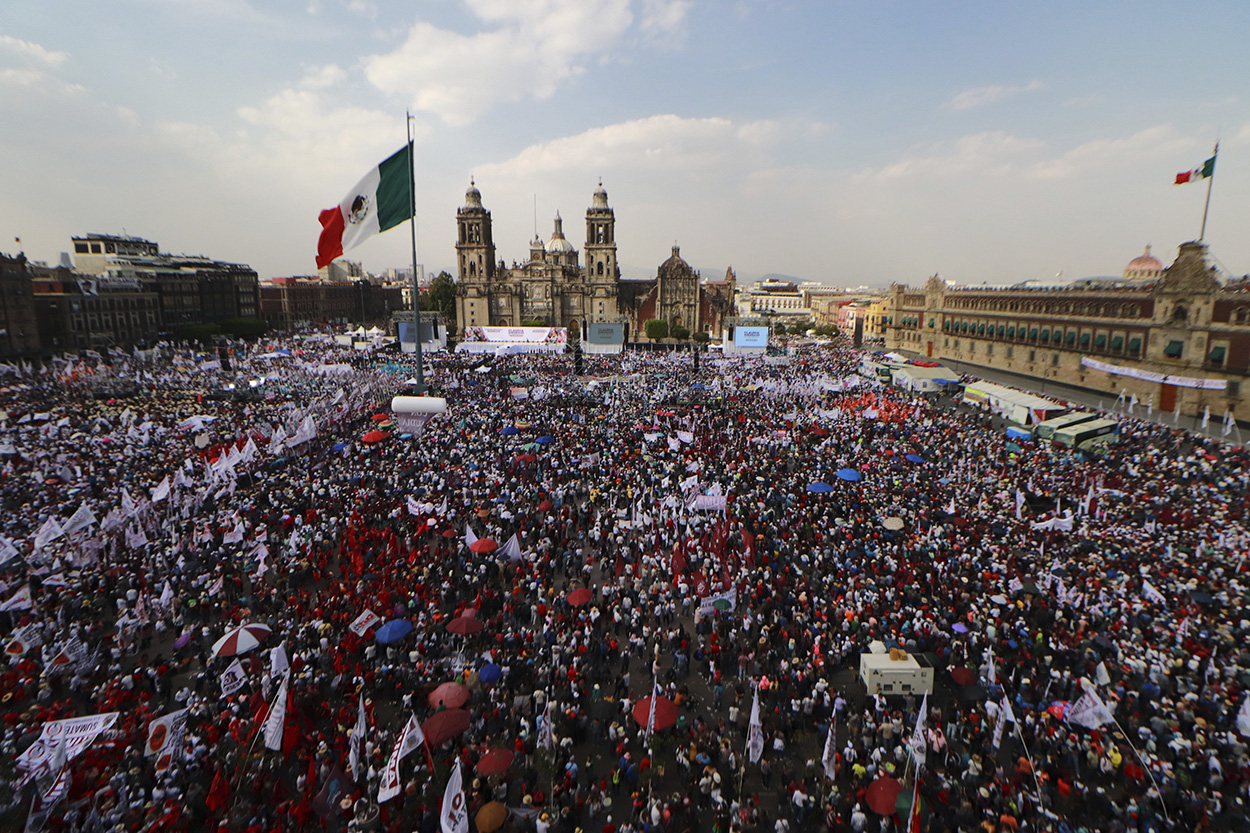Five Points on Mexico’s Energy Reform Debate in Congress
Five Points on Mexico’s Energy Reform Debate in Congress
COA Director of Energy Christian Gómez explores key questions as Mexico’s Congress seeks to pass a much-anticipated energy reform this month.
Updated December 12—On December 7, Mexico’s Senate began debate on a wide-ranging energy reform bill presented in Congress by two of the country’s three major political parties. The Senate approved the bill on December 11 and sent it to the lower house. The legislation, backed by the governing Institutional Revolutionary Party (PRI) and opposition National Action Party (PAN), would open up state-run oil monopoly Pemex to private investment. But unlike a reform bill proposed by President Enrique Peña Nieto in August, this legislation goes further in opening Mexico’s oil sector.
COA Director of Energy Christian Gómez explores some of the key questions to watch on Mexico’s energy reform process.
How does the congressional bill differ from the initial proposal presented by Peña Nieto in August?
The PRI plan presented in August called for profit-sharing—not production-sharing agreements—for companies wishing to invest in Pemex. The profit-sharing agreements, in which companies are paid in cash and companies are not allowed to book reserves, were generally seen as a less attractive mechanism for private-sector companies to invest. A profit-sharing agreement is employed when there is perceived to be a lower risk in exploration and production and where compensation forms a portion of the profits.
However, the legislation, in addition to the profit-sharing agreements, calls for production-sharing agreements, which are employed when there is more risk, as the company ends up losing more should exploration not yield oil. The PAN specifically wanted companies to declare the reserves as an asset on their books. The production-sharing contracts allow the companies to report projected income and are thus seen as friendlier to foreign investment.
What is meant by “licenses” included in the proposal?
An unexpected outcome was the inclusion of licenses in the legislation. These licenses allow companies to manage oil directly and will be used primarily for shale gas exploration. Licenses, contained in the original PAN plan, act in many ways like concessions in which companies control oil and pay royalties and taxes to the government. The authors of the bill were likely reluctant to use the word “concession” due to the implications that the oil might no longer be property of the state.
What is the sovereign oil fund?
Another surprise in the legislation—also found in the PAN plan—is the creation of a sovereign oil fund. The fund will channel all of the earnings from oil sales and service contracts into savings and pensions. Mexico’s Central Bank will operate the fund.
How has the PRD been involved?
Mexico’s third main political party, the Party of the Democratic Revolution (PRD), serves as an ardent opponent to energy reform as elaborated in the PAN-PRI bill. Prior to its unveiling, the PRD called for the Congress not to vote on the energy reform. Members of the PRD said that the energy reform should not be discussed among just two political parties.
As such, the PRD left the Pact for Mexico on November 28. The Pact was created after Peña Nieto’s inauguration as a means to achieve a reform agenda for Mexico. Given that the PRI and PAN—combined with smaller parties that will vote with them—have the necessary votes to pass the legislation in Congress, these parties do not need to accommodate the PRD in terms of the legislation.
Nevertheless, on December 5, the PRD rejoined the Pact on the condition that the government obey any popular referenda, the passage of reforms to the Federal District (Mexico City), and that the text of the energy reforms includes the statement that Mexico will retain control and ownership over its hydrocarbons. While an unintended consequence of energy reform might have been the splintering of the Pact—thus far a successful example of consensus—it appears that the coalition will live on, for now
What’s next?
Having passed the Senate, Mexico’s Chamber of Deputies will debate the bill this week, but the legislative session closes on December 15. Thus far, the PRD has amplified the debate against the energy reform in order to try to halt the process. The PRI and PAN will have to work together in order to pass the legislation.
In addition to this bill, secondary legislation must be passed next year in order to implement constitutional changes. While challenging, the PRI-PAN coalition will seek to pass the bill before the end of the year, which would be a significant achievement for Peña Nieto, who is celebrating one year in office.
To speak to an expert on this topic, contact alarotta@as-coa.org.







